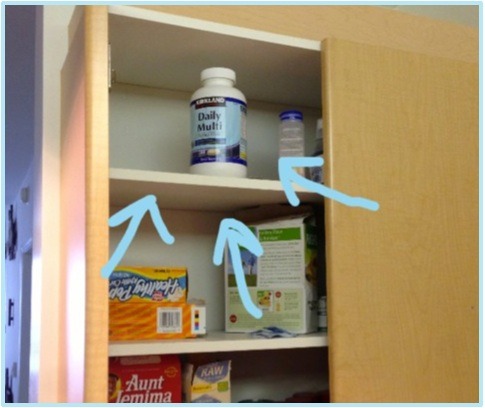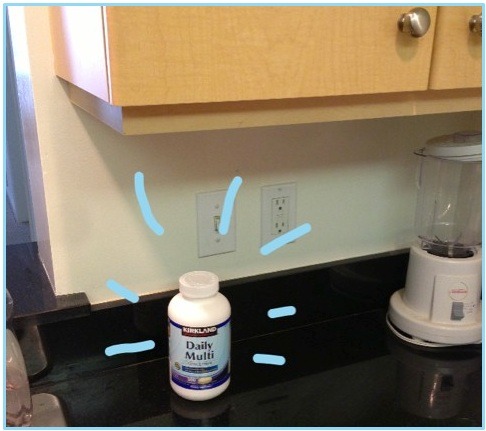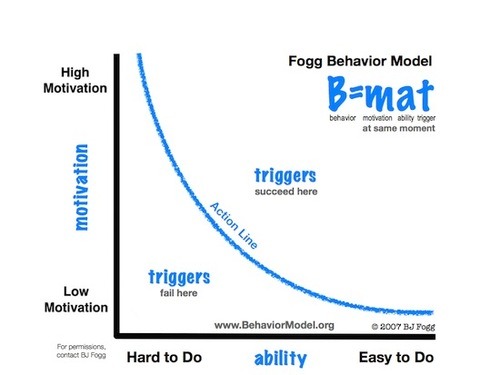Each morning, my mother would hand me my daily Flintstones chewable vitamin before I left for school. But now that I’m an adult, she can’t tell me what to do — Mountain Dew and Starcraft all night!
Well, and less vitamins. Since moving out of my parents’ house long ago, I’ve also moved away from this healthful routine. Sometimes it takes effortful self-control to do things we know we should do. But not always. Habits can function as a force, shaping our behavior and negating the need for self-control.
So months ago, I purchased a jar of multi-vitamins and placed it in my cupboard to get back into my healthy vitamin habit.

It sat there. Unused. Lonely.
I’m responsible. I’m a grown-up. I knew I should take my vitamins. Yet it was hard to do so regularly.
So I made one small change: I took the jar out of the cupboard and placed it on the countertop. Since then, I haven’t missed a day of taking my vitamins.

The visible jar is an unavoidable reminder, a trigger to take my vitamins. Removing them from the cupboard also made it easier, increasing my ability to do so. Sometimes the tiniest friction can make the difference between action and inaction.
BJ Fogg’s Behavior Model describes this best:

“[T]hree elements must converge at the same moment for a behavior to occur: Motivation, Ability, and Trigger.”
By simply increasing my ability and creating a trigger, I’ve been able to reinstate this habit. Sometimes it doesn’t take all that much to change behavior that feels so difficult to start doing regularly. For example:
- Buffer’s Leo Widrich recommends setting gym clothes on top of the alarm clock to encourage morning exercise.
- Google increased water consumption by 47% by simply rearranging the fridge. Water moved to eye-level, unhealthy soda to the bottom. More Googlers chose the more visible, reachable bottled water.
- Leo Babauta instructs daily flossing-challenged people to start flossing just one tooth per night. This may seem ridiculous but starting out with very small habits makes large changes in behavior much easier.
What changes would you like to make in your life?
Here are a few triggers and friction-reducers to start:
- Want to eat healthier? Pre-prepare individual meals and place them toward the front of your fridge for maximum visibility and accessibility.
- Having trouble focusing at work? Remove notifications, which are triggers that kill productivity, and access to non-essential applications, which increase friction against distraction. (Check out Information Diet’s excellent list of tools for managing digital distractions.)
- Want to blog more? Make an effort to write the first thing that comes to mind each morning as you prepare your morning coffee. As soon as the kettle sounds, stop and move on with your day.
Reflect on your daily behavior. Which are destructive? What changes would you like to make? Consider how these simple concepts be used to change your daily habits and improve your life.
What habit hacks have you implemented in your life? Please share with me on Twitter @rrhoover or in the comments!
Liked this guest post? Subscribe to our free newsletter for more great content on productivity, management, and how to work better!
